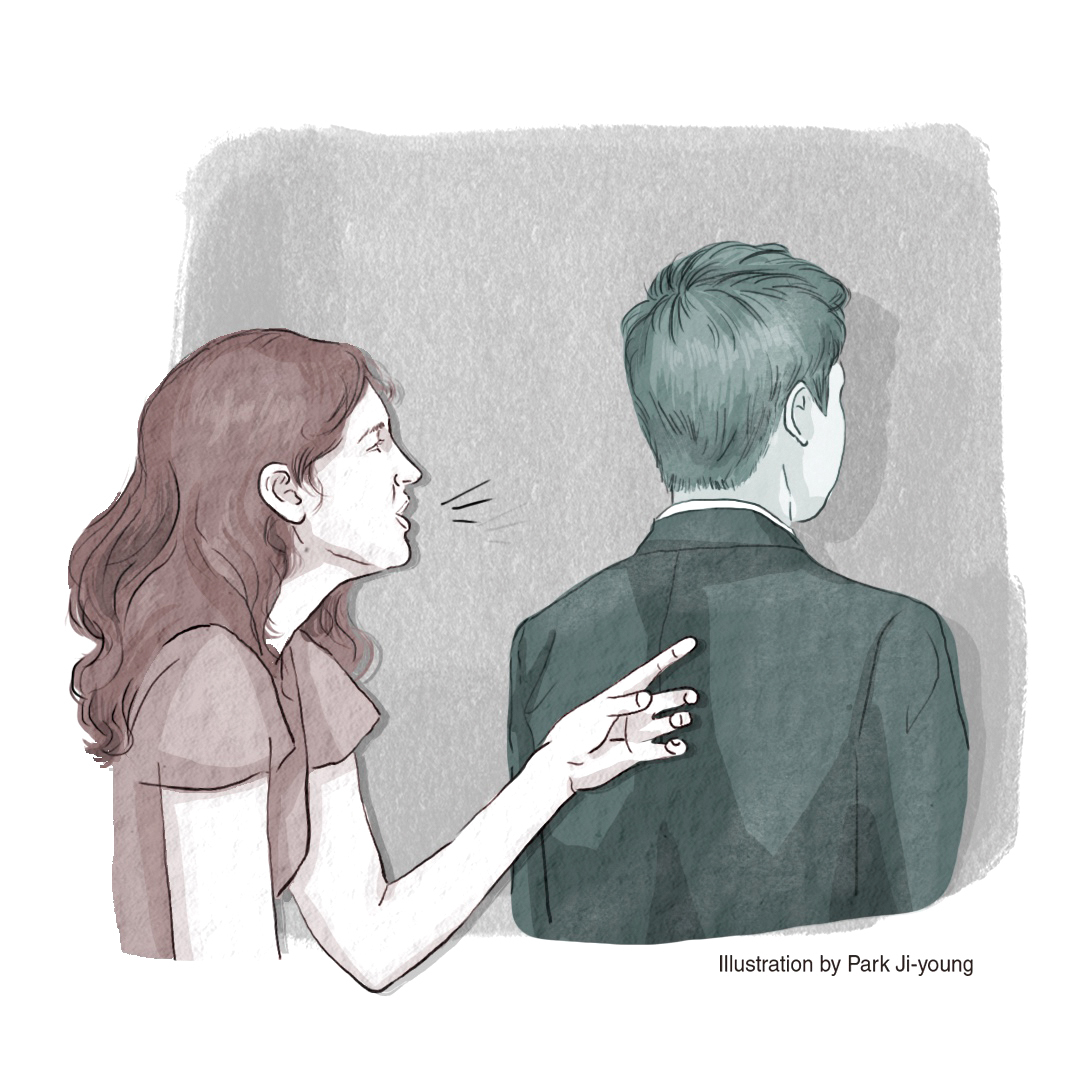Honorific titles can be tricky in many cultures, but can be particularly baffling in South Korea -- where various factors like social status, age, work experience and even social prejudice can be factored in. This is part one of a series on the myriad ways people address each other in the Korean language. -- Ed. In a scene played for laughs in the 2016 movie “Doctor Strange,” the titular protagonist keeps correcting those referring to him as “Mr. Strange” by saying, “Doctor! Doctor Strange.” If Steven Strange was a Korean, his insistence on being called Doctor, not Mister, would have a completely different connotation.

A scene from Doctor Strange in the Multiverse of Madness (Walt Disney Co. Korea)
English honorifics such as Mr., Ms., Miss, or Mrs. are roughly equivalent to the Korean word “ssi,” but not exactly so. The state-published Standard Korean Language Dictionary defines ssi as “a term used to address someone in a respectful manner,” but adds that it is usually used for people who are colleagues or in an inferior position compared to the speaker.
This means that while addressing someone via a neutral honorific like Mr. or their job title is an issue of mere preference in English, it is an issue of proper manners in Korean. Addressing Steven Strange as “Mr. Strange” instead of “Dr. Strange” would imply that the speaker is not giving the wizard proper respect, and the wizard has rightful cause to get upset.
Local researchers have found that Korean, Chinese and Japanese are more likely to use one’s official title or occupational name compared to German, Spanish, English and French. According to the “Language Typology of Using the Names of Occupations as Titles and Address Terms” published by the Language Research Institute of Hankuk University of Foreign Studies, the aforementioned Asian countries tend to put stronger emphasis on formality and social status, a tendency which is highest in Korean.
This means Koreans have the strongest tendency to use job names as honorifics than names out of the seven languages studied.

(Illustration by Park Ji-young
In this context, it would not be considered rude for the director of a company named Lee Hyun-jung to refer to his subordinate Kim Min-soo as “Min-soo ssi,” but it would be considered very disrespectful for the latter to do the same to Lee. In this case, it would be proper for Kim to say “Director Lee,” honoring his superior status.
A controversy related to such an application occurred earlier this month when a conservative civic group filed a petition against liberal journalist Kim Eo-jun to the National Human Rights Commission for referring to the first lady Kim Keon-hee as “Kim Keon-hee ssi,” instead using the title “yeosa” -- a respectful way of addressing a married woman and one usually used for first ladies.
In cases like addressing first ladies who generally require respect but hold no official titles, it is deemed respectful to use honorifics like “yeosa” or “seonsaengnim (teacher).” A recently deceased novelist Lee Oe-su was generally referred to as “Lee Oe-su seonsaengnim” whenever he was directly addressed by younger contemporaries.
In Korean culture, one’s “inferior position” is not only linked to his or her official title, but also the number of years he or she has worked in a particular field, as well as his or her age.
For example, Korean soccer legend Cha Bum-geun could easily address his much younger compatriot Son Heung-min as “Son Heung-min ssi,” but Son doing the same to Cha -- 39 years his senior -- would be considered extremely disrespectful.

South Korean soccer player Son Heung-min (Yonhap)
Of course, those deemed to be have “superior status” could show respect to those deemed inferior by how they address the latter. Cha calling the Tottenham forward “Son Heung-min seon-su (player),” using his job name as an honorific, would be an even more respectful way of addressing him.
By Yoon Min-sik
(minsikyoon@heraldcorp.com)








![[Graphic News] More Koreans say they plan long-distance trips this year](http://res.heraldm.com/phpwas/restmb_idxmake.php?idx=645&simg=/content/image/2024/04/17/20240417050828_0.gif&u=)